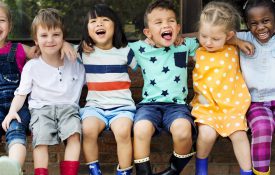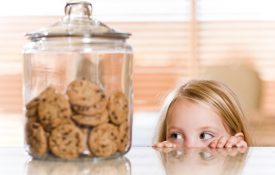-

Kids’ Altruism Linked with Better Physiological Regulation, Less Family Wealth
Children as young as 4 years old may reap better health from altruistic giving, a behavior that tends to be less common among kids from high-income families.
-
Brains, Schools and a Vicious Cycle of Poverty
The Wall Street Journal: A fifth or more of American children grow up in poverty, with the situation worsening since 2000, according to census data. At the same time, as education researcher Sean Reardon has
-
An ‘income-achievement’ gap within kids’ brain structures
The Boston Globe: Research has long shown that students from low-income families tend to lag behind their wealthier peers on standardized test performance and other measures of academic success. Now, a study led by researchers
-
American Dream? Or Mirage?
The New York Times: ECONOMIC inequality in the United States is at its highest level since the 1930s, yet most Americans remain relatively unconcerned with the issue. Why? One theory is that Americans accept such
-

The Lasting Power of Patience
Longitudinal data from thousands of participants show that childhood measures of self-discipline predict everything from personal income to the pace of physiological aging in adulthood.
-
Brain, Behavior, and the Economy
Psychological science, once criticized for underestimating the impact of socioeconomic factors on psychological development and functioning, now plays a lead role in investigating how wealth and poverty affect thought, emotion, and action throughout our lives.

